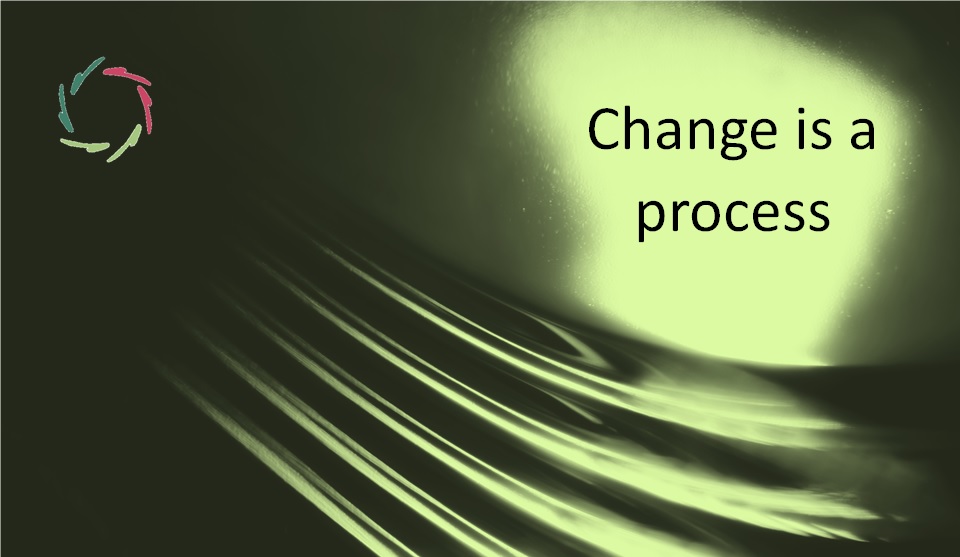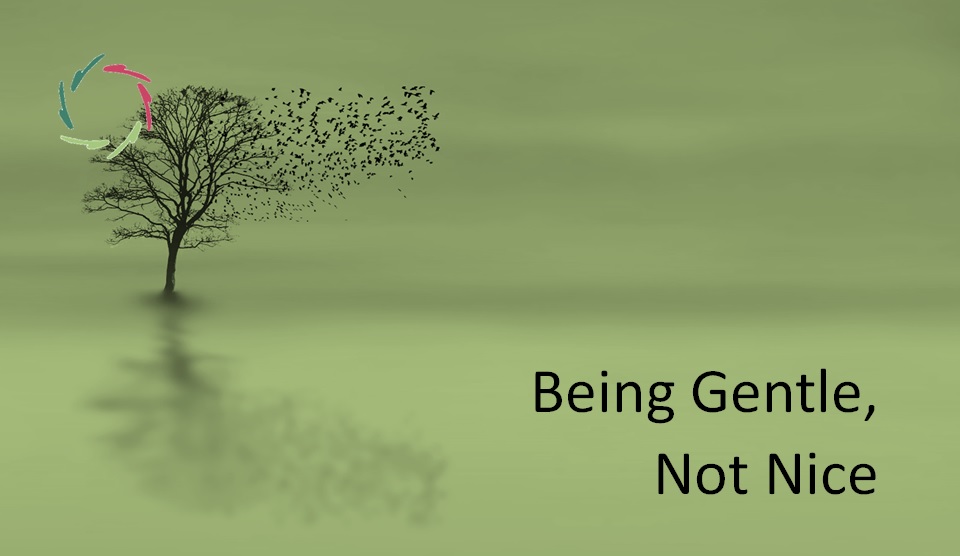Change is a process

Especially meaningful change, which is the change that is, well, most meaningful, thus most important. Insight into the brain/mind is essential to understand why.
We are not some software in some hardware.
I hope this is obvious to you. The reason is that we are complex organisms. [see: “You Are an Organism, Not a Mechanism.“]
As software, we could be re-programmed – neuro-linguistically or otherwise – but, as said, we’re not. That makes our matters more difficult and interesting ― including when we want to change.
This is an issue in psychotherapy, for instance, and in organizational change management.
Meaningful change is not a simple happening.
It starts with the change itself.
[see: “Mental Change: How it Works“] The brain/mind is an evolutionary instrument to reach higher flexibility in a changing environment. Change is the goal.
But ‘resistance’ to change is also a goal. If we changed too quickly, we would be incapable of adapting in the long term. We would change again and again at any single event. Our brain/mind needs to recognize events as beings ones of the same class, needing the same response. For that, we need some degree of robustness in our thinking. Not being indiscriminately changeable is a strategy towards this. To a certain degree, the difficulty to change is on purpose. [see: “Is Change Difficult?“]
Also, this difficulty comes naturally at the brain level. Within the hugely complicated conglomerate of neuronal patterns that our brain consists of, any individually changed pattern finds itself between colleagues that are rather suspicious of the new situation. Moreover, they are very much mutually intertwined with many other patterns that are also intertwined.
Therefore, the way one changes is as important as the change itself.
Many of the relevant brain/mind patterns are non-consciously performing their complex influences. This makes them less directly accessible through conscious means. In therapy, the consequence is that a merely instrumental way is less efficient.
Autosuggestion is about reaching non-conscious mental patterns indirectly ― yet as efficiently as possible. [see: “Mental Patterns Change through Autosuggestion“]
Even so, the real change-from-inside is to be seen as a process. In many cases, there is a lot to do underground before the seed pops up. Germinating is a complex process. This complexity is generally underestimated.
It continues after the ‘change.’
A person may feel changed, look changed, acknowledge being changed. Yet after a short or longer while, he may slide back as if nothing happened. You may have witnessed this at yourself or someone else.
This is because change continues being a process after what may be regarded as the ‘moment it happened.’
In two pictures
Most frequently, and meaningfully, it happens like this:

and not like this:

Huge difference.
Although it may sometimes look like the second, at the level of non-conscious patterns, the real change may still have been taking a while in preparation and continues for a time longer. In neurocognitive science experiments, this can be tracked gradually more and visualized in, for instance, fMRI. We can see it happen in the short term (several seconds).
Almost certainly, it also consistently happens in the longer term. Conscious awareness may be quite misleading in this.
We see S-curves in almost anything human-related, including change. We should respect this.
Also, it is much more efficient.


